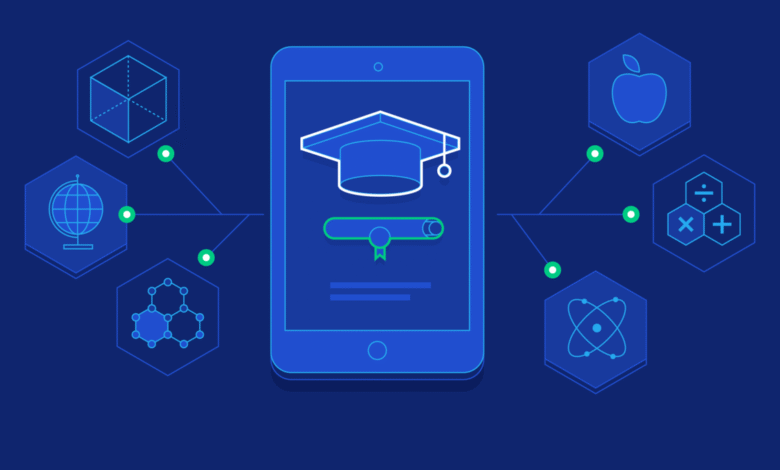Trends Transforming Education: Why EdTech Is the Most Exciting Corner of Tech Right Now

For decades, education was seen as one of the slowest-moving sectors—rooted in traditional classrooms, chalkboards, and linear curricula. It was often overlooked by investors and technologists who were more drawn to flashier industries like fintech, biotech, or social media. But that’s no longer the case. Education is undergoing a radical transformation, and the force driving that shift is EdTech.
The rise of educational technology is not only changing how we teach and learn—it’s fundamentally reshaping what education means in the 21st century. From AI tutors to immersive virtual classrooms, from personalized learning paths to global teacher-student collaborations, the pace of innovation in EdTech is rivaling that of any other industry. And what makes it even more exciting is that these trends don’t just affect consumers or corporations—they touch nearly every human being on the planet.
Education is no longer confined by geography, affordability, or age. Thanks to EdTech, learning has become a lifelong, global experience. Whether you’re a ten-year-old coding in Scratch from your tablet, a university student attending lectures in the metaverse, or a 40-year-old learning cloud computing for a career pivot, the world of education is now as dynamic and fast-paced as the people it serves.
Personalization as the New Standard
One of the most game-changing trends sweeping through EdTech is personalization. Traditional education systems often operate on a one-size-fits-all model. Students move through content at the same pace, regardless of their strengths, weaknesses, or learning styles. But with the advent of adaptive technologies and AI-driven platforms, that’s changing.
Today’s best EdTech tools are designed to understand how a learner performs, what engages them, where they struggle, and how they prefer to absorb new information. Algorithms recommend next steps. Feedback is instant. And students feel seen—because the experience is no longer generic, but tailored.
This shift is particularly important for those who have historically been left behind in conventional classrooms. Students with learning differences, language barriers, or inconsistent access to quality education are now finding platforms that adapt to them instead of expecting them to fit the mold. The result isn’t just better grades—it’s deeper engagement, greater confidence, and a more equitable playing field.
Global Classrooms Without Borders
The concept of a classroom has expanded beyond anything previous generations could imagine. With remote learning, video conferencing, and collaborative digital tools, students and teachers can now connect across continents in real time. Geography is no longer a limiting factor.
This borderless nature of EdTech opens up incredible opportunities—not only for access to education but for cultural exchange, mentorship, and global thinking. A student in rural Brazil can take a course taught by a professor in Paris. A teacher in Kenya can lead a workshop for students in Canada. And diverse perspectives become part of the learning process, not a bonus.
In the middle of this evolution are platforms making global talent more discoverable and employable. If you’re looking to build a career within this vibrant space or understand where the industry is headed, click here for a closer look at how EdTech is connecting education professionals with opportunities that match their skills and passion.
The democratization of both learning and teaching is arguably one of EdTech’s greatest accomplishments. It’s not just about educating more people—it’s about building a future where anyone, anywhere, can contribute to the conversation.
AI and the Rise of Intelligent Learning
Artificial intelligence is no longer confined to sci-fi movies and Silicon Valley labs. It’s now embedded in the very tools students use every day—recommending lessons, grading assignments, offering personalized tutoring, and even analyzing emotional engagement through facial cues or typing patterns.
This isn’t about replacing teachers—it’s about empowering them. AI can take over the repetitive, time-consuming tasks and allow educators to focus on what truly matters: mentoring, inspiring, and connecting. At the same time, students benefit from instant support that’s always available, always responsive, and uniquely tuned to their needs.
As these tools continue to evolve, we’ll see an increasing shift from reactive to proactive learning. Platforms will identify potential misunderstandings before they solidify, detect patterns in student performance, and suggest interventions long before a test score reflects a problem. It’s not just smarter technology—it’s smarter education.
The Future of Credentials
Another trend making waves in EdTech is the disruption of traditional credentials. The value of a college degree is no longer taken at face value. Employers are now prioritizing demonstrated skills, project portfolios, and performance over where someone went to school.
EdTech platforms are leading the charge in offering micro-credentials, nanodegrees, and certifications that are tightly aligned with real-world job requirements. These alternatives are often more affordable, more accessible, and more directly relevant to today’s economy.
In this new landscape, learners can build personalized stacks of skills over time. They can pivot, adapt, and stay current with trends in cybersecurity, data science, digital marketing, and more. It’s not about following a rigid educational path—it’s about designing your own.
This shift is especially important in the global job market, where talent doesn’t always come with a traditional resume. By recognizing and rewarding skill-based achievement, EdTech is enabling a more inclusive and dynamic workforce.
Why EdTech Matters Now More Than Ever
In addition to all the student-facing innovations, one under-appreciated shift in EdTech is how institutions are changing the behind-the-scenes workflow. Modern tutoring services are no longer just about creating videos or scheduling classes—they’re about managing tutors, tracking student engagement, optimizing hours … and doing it all at scale.
For example, smart platforms now offer integrated tutor-management tools so that when a tutor logs in, they already see their roster, upcoming sessions, performance metrics and student feedback. That kind of operational backbone is becoming just as important as the learning experience itself. If your organisation is looking to streamline that side of things, a specialist solution like tutor management software can be a real game-changer.
The global challenges we face—climate change, economic instability, political unrest—require a population that is not only educated but adaptable, resilient, and innovative. EdTech isn’t just about learning faster or more efficiently. It’s about preparing people for a world that is constantly changing.
What makes EdTech so thrilling is its purpose. Behind every algorithm, every interactive lesson, and every gamified platform is a mission to expand human potential. This is not an industry built on hype. It’s built on the belief that education—accessible, personalized, and global—can change the trajectory of lives, communities, and entire countries.
As we move deeper into the digital age, the line between education and technology will continue to blur. And for those paying attention, EdTech is no longer the “quiet” corner of the tech world—it’s the engine of something much bigger.
Because when you change how people learn, you change what’s possible.




